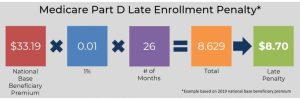Table of Contents
-
- Introduction
- How Medicare and Medicaid Coverage Differ for Assisted Living
- Exploring the Benefits of Medicare and Medicaid Coverage for Assisted Living
- What to Consider When Choosing an Assisted Living Facility with Medicare and Medicaid Coverage
- Understanding the Cost of Assisted Living with Medicare and Medicaid Coverage
- Navigating the Process of Applying for Medicare and Medicaid Coverage for Assisted Living
- Conclusion
“Secure Your Future with Medicare Medicaid Coverage for Assisted Living”
Introduction
Medicare and Medicaid are two of the most important health insurance programs in the United States. They provide coverage for a variety of medical services, including those related to assisted living. Assisted living is a type of long-term care that provides assistance with activities of daily living, such as bathing, dressing, and eating. Medicare and Medicaid can help cover the costs of assisted living, depending on the individual’s eligibility and the type of care needed. This article will provide an overview of how Medicare and Medicaid coverage works for assisted living, as well as the eligibility requirements and other important information.
Find Medicare Plans in 3 Easy Steps
We can help get up to $0 monthly premium Medicare plans
How Medicare and Medicaid Coverage Differ for Assisted Living
Medicare and Medicaid are two government-funded health insurance programs that provide coverage for a variety of medical services. While both programs offer coverage for assisted living, there are some key differences between the two.
Medicare is a federal health insurance program that is available to people who are 65 years of age or older, as well as certain younger people with disabilities. Medicare does not cover the cost of assisted living, but it does cover certain services that may be needed in an assisted living facility, such as skilled nursing care and physical therapy.
Medicaid is a joint federal and state program that provides health coverage to low-income individuals and families. Medicaid does cover the cost of assisted living, but the coverage varies from state to state. In some states, Medicaid will cover the full cost of assisted living, while in other states it may only cover a portion of the cost.
In addition, Medicaid may also cover other services that are needed in an assisted living facility, such as personal care services, medical supplies, and transportation. However, these services are typically limited to those that are medically necessary.
Overall, Medicare and Medicaid both provide coverage for assisted living, but the coverage varies depending on the program and the state in which you live. It is important to understand the differences between the two programs in order to determine which one is best for your needs.
Exploring the Benefits of Medicare and Medicaid Coverage for Assisted Living
Medicare and Medicaid are two of the most important government-funded health insurance programs in the United States. They provide coverage for a wide range of medical services, including those related to assisted living. Assisted living is a type of long-term care that provides support and assistance with activities of daily living, such as bathing, dressing, and eating.
For those who qualify, Medicare and Medicaid can provide significant financial assistance for assisted living. Medicare is a federal health insurance program that is available to people over the age of 65, as well as certain younger individuals with disabilities. Medicare does not cover the full cost of assisted living, but it does provide coverage for certain services, such as skilled nursing care and physical therapy.
Medicaid is a state-run health insurance program that is available to individuals with limited income and resources. Medicaid can provide coverage for a variety of long-term care services, including those related to assisted living. Depending on the state, Medicaid may cover the full cost of assisted living or provide a partial subsidy.
The benefits of Medicare and Medicaid coverage for assisted living are numerous. For those who qualify, these programs can provide financial assistance for the cost of care, allowing individuals to remain in their homes or move to an assisted living facility. Additionally, Medicare and Medicaid can provide access to a variety of services, such as skilled nursing care and physical therapy, which can help individuals maintain their independence and quality of life.
In addition to providing financial assistance, Medicare and Medicaid can also help individuals access other resources, such as home health aides and transportation services. These services can help individuals remain independent and active in their communities.
For those who qualify, Medicare and Medicaid can provide significant financial assistance and access to a variety of services that can help individuals remain independent and active in their communities. By taking advantage of these programs, individuals can enjoy the benefits of assisted living without the burden of high costs.
What to Consider When Choosing an Assisted Living Facility with Medicare and Medicaid Coverage
When choosing an assisted living facility with Medicare and Medicaid coverage, there are several important factors to consider.
First, it is important to research the facility’s reputation and quality of care. Check online reviews and ratings, and speak to family members and friends who have experience with the facility. Additionally, it is important to visit the facility in person to get a sense of the environment and the quality of care.
Second, it is important to consider the cost of the facility. Medicare and Medicaid coverage may cover some of the costs, but it is important to understand what is covered and what is not. Additionally, it is important to consider any additional fees or services that may be required.
Third, it is important to consider the services offered by the facility. Different facilities may offer different services, such as medical care, recreational activities, and social activities. It is important to make sure that the facility offers the services that are needed.
Finally, it is important to consider the location of the facility. It is important to make sure that the facility is close to family and friends, as well as to medical facilities and other services.
By considering these factors, it is possible to find an assisted living facility with Medicare and Medicaid coverage that meets the needs of the individual.
Find Medicare Plans in 3 Easy Steps
We can help get up to $0 monthly premium Medicare plans
Understanding the Cost of Assisted Living with Medicare and Medicaid Coverage
Assisted living is a type of long-term care that provides seniors with assistance with activities of daily living (ADLs) such as bathing, dressing, and eating. It also offers social activities, recreational activities, and other services. Assisted living can be a great option for seniors who need help with daily activities but do not require the level of care provided in a nursing home.
The cost of assisted living can vary greatly depending on the services provided and the location of the facility. In general, assisted living costs more than living independently, but it can be more affordable than a nursing home. Fortunately, there are several options for covering the cost of assisted living, including Medicare and Medicaid.
Medicare is a federal health insurance program that covers certain medical expenses for people over the age of 65. Medicare does not cover the cost of assisted living, but it may cover some of the medical services provided in an assisted living facility. For example, Medicare may cover doctor visits, lab tests, and certain medical equipment.
Medicaid is a joint federal and state program that provides health coverage to low-income individuals and families. Medicaid may cover the cost of assisted living if the individual meets certain eligibility requirements. In some states, Medicaid will cover the full cost of assisted living, while in other states it may only cover a portion of the cost.
It is important to understand the cost of assisted living and the coverage options available. Medicare and Medicaid can help cover the cost of assisted living, but it is important to understand the eligibility requirements and the services covered. It is also important to research the cost of assisted living in your area to ensure you are getting the best value for your money.
Navigating the Process of Applying for Medicare and Medicaid Coverage for Assisted Living
Navigating the process of applying for Medicare and Medicaid coverage for assisted living can be a daunting task. However, with the right information and resources, it is possible to successfully apply for coverage.
The first step in the process is to determine if you or your loved one is eligible for Medicare or Medicaid coverage. To be eligible for Medicare, you must be 65 years of age or older, or have a disability or end-stage renal disease. To be eligible for Medicaid, you must meet certain income and asset requirements.
Once you have determined eligibility, you will need to complete an application. For Medicare, you can apply online, by phone, or in person at your local Social Security office. For Medicaid, you will need to contact your state’s Medicaid office to obtain an application.
Once you have completed the application, you will need to submit it to the appropriate agency. For Medicare, you will need to submit the application to the Social Security Administration. For Medicaid, you will need to submit the application to your state’s Medicaid office.
Once your application has been submitted, you will need to wait for a response. The processing time for Medicare and Medicaid applications can vary, so it is important to be patient.
Once your application has been approved, you will need to contact your assisted living facility to discuss coverage options. The facility will be able to provide you with information about the services they offer and the cost of those services.
Navigating the process of applying for Medicare and Medicaid coverage for assisted living can be a complex process. However, with the right information and resources, it is possible to successfully apply for coverage.
Find Medicare Plans in 3 Easy Steps
We can help get up to $0 monthly premium Medicare plans
Conclusion
In conclusion, Medicare and Medicaid coverage for assisted living can be a great option for those who need help with daily activities and medical care. It can provide financial assistance to those who need it, and can help to ensure that seniors receive the care they need. However, it is important to understand the eligibility requirements and the coverage limits of each program before making a decision. Additionally, it is important to research the assisted living facility to ensure that it meets the standards of quality care.





